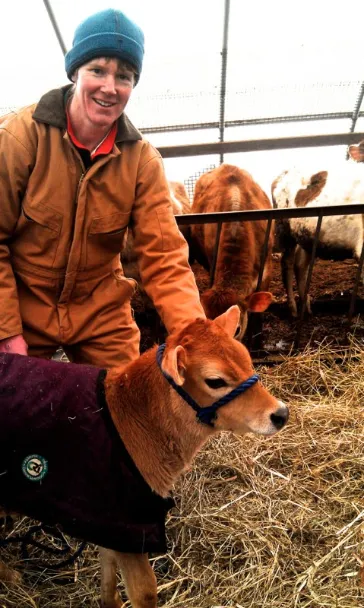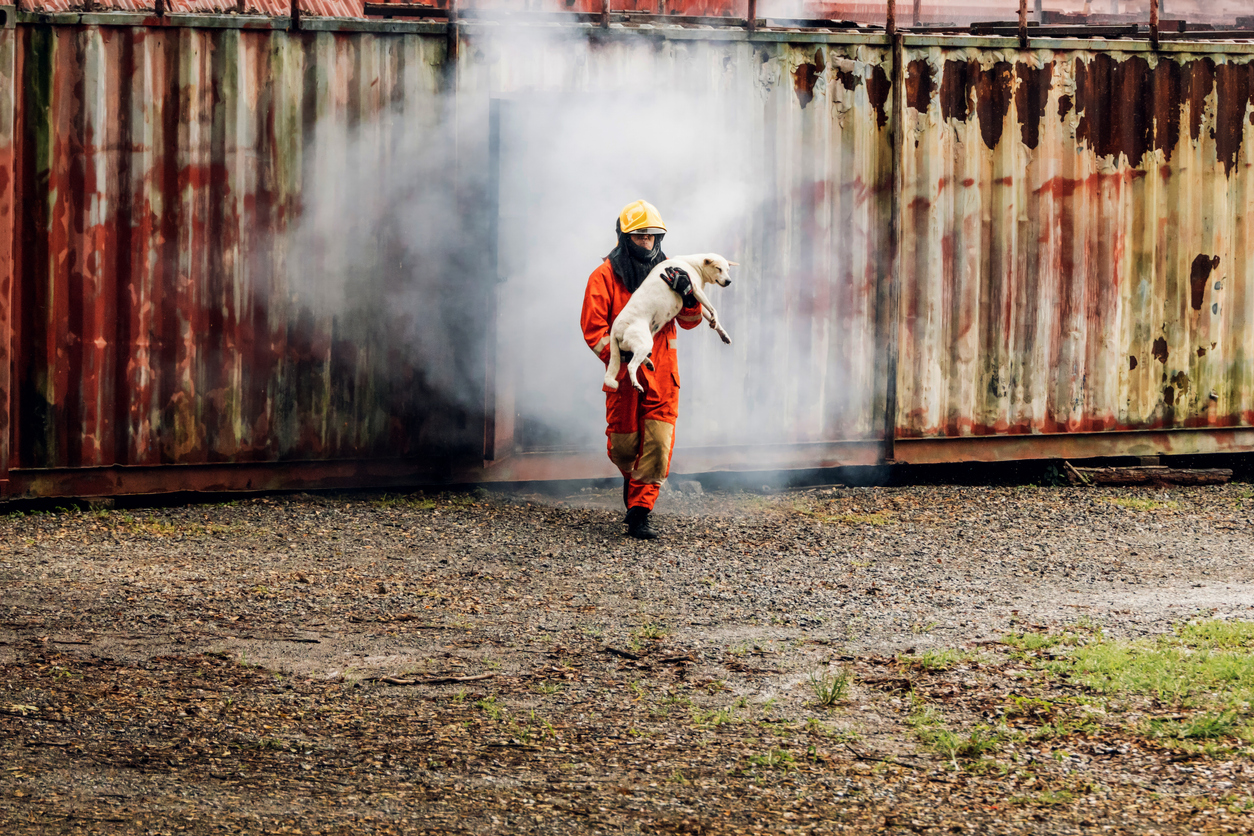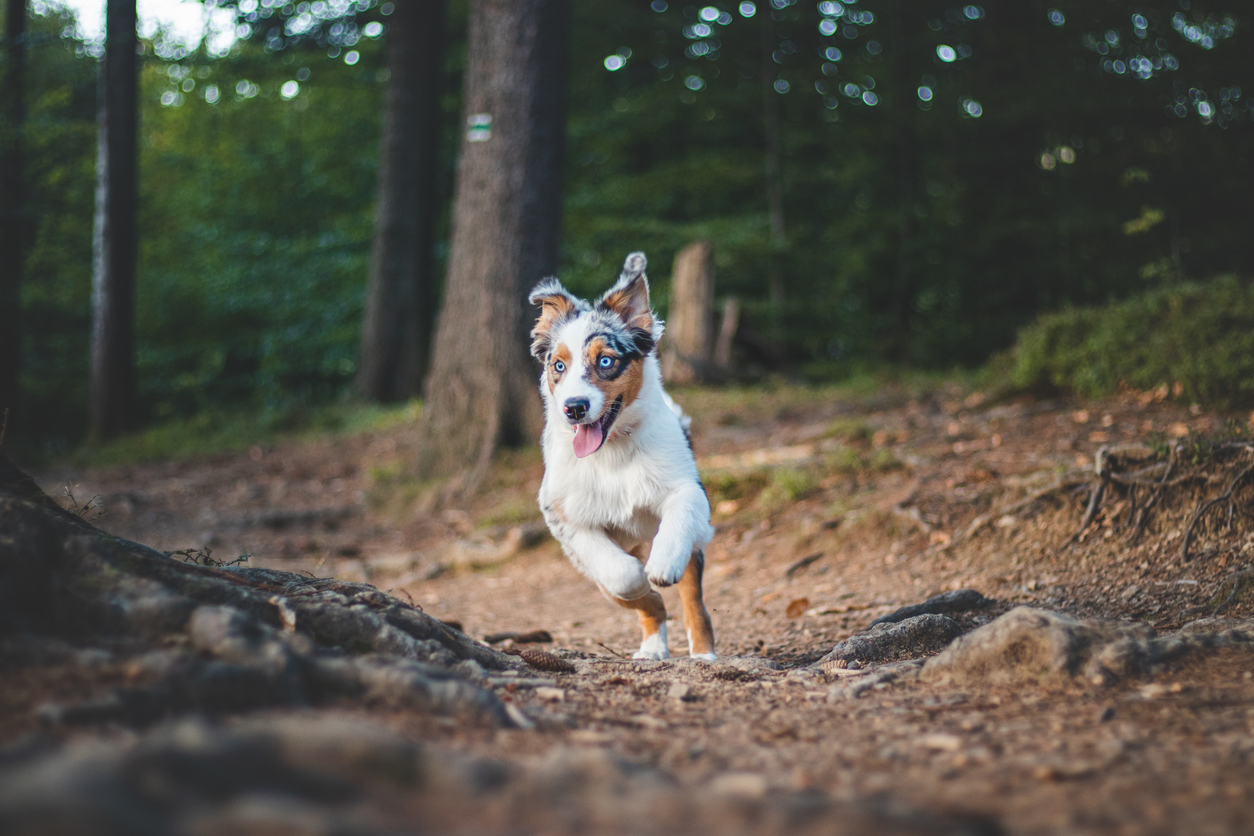At All Animal Veterinary Services, we understand that your pets and livestock are more than just animals—they’re family. As a full-service veterinary clinic, we cater to a diverse range of animals, from household pets to farm animals. Our commitment is to ensure that all your animals receive the best care possible.
Ulster County, New York, where our practice is located, has experienced several natural disasters, including a significant wildfire at Minnewaska State Park in 2022, which scorched over 150 acres. Thanks to our firefighters’ swift and courageous efforts, the fire was contained, preventing the need for widespread residential evacuations. Nevertheless, authorities urged residents to remain vigilant and ready to evacuate if the fire had continued to spread.
In addition to wildfires, Ulster County is vulnerable to other natural events, such as severe storms, flooding, and even tornadoes. For example, our intense storms in July 2023 led to flash floods that impacted the region’s homes, businesses, and roads.
Additionally, human-caused incidents—like building fires—can be equally catastrophic and often strike without warning. These potential disasters highlight the importance of being prepared for any situation, ensuring your family and animals are safe and well-cared for during emergencies.
Do You Have an Emergency Evacuation Plan That Includes Your Pets?

Creating an emergency evacuation plan is crucial for ensuring your family’s safety during a disaster. Start by identifying safe routes out of your home, establishing a communication plan, and assembling an emergency kit that includes essentials for every family member, including pets. For a comprehensive checklist on how to put together an effective evacuation plan, visit https://www.ready.gov/plan.For emergency resources in Ulster County, please visit Comprehensive Emergency Management Plan.
Pet Disaster Preparedness
When preparing for a disaster, it’s essential to consider the well-being of your animals, as they can be just as stressed and disoriented as you during an emergency. Having a clear evacuation plan is vital to ensure their safety. Below are key steps to help you create a comprehensive plan. Each of these steps plays a crucial role in protecting your pets and ensuring they can be quickly and safely evacuated in a disaster.
Carrier Training
Train your pets to feel comfortable in their carriers by using them regularly, making them a safe and familiar space.
Practice Evacuations
Practice evacuating with your pets. Take them for car rides to get them used to traveling and familiarize yourself with places your pet might hide when scared. You need to be able to access them quickly.
Family Coordination
- Assign family members specific tasks, such as who will gather the pets, who will grab the emergency kits, and who will secure the home.
- Choose a safe spot outside your home where everyone, including pets, should meet in case of an evacuation.
- Have your family practice evacuating together so everyone knows what to do, where to find the pets, and where to meet.
- Have a contingency plan for when authorities announce an evacuation order when you are not home. Find out if a trusted neighbor or family member who lives nearby would be willing to take your pets and meet you at a prearranged location.
Pet-Friendly Evacuation Shelters, Motels, or Hotels
Contact your county emergency management office or local animal shelter to find out in advance if there is a pet-friendly emergency shelter in your area. If there is no emergency animal shelter, list pet-friendly motels or hotels in your area.
Home Fire Safety Alert: Protecting Pets with Window Notifications
To protect your pets in case of a house fire, place notifications in your windows to alert firefighters to the animals inside. These alerts can be lifesaving when time is critical.
*For more tips and information about preparing your pets for a disaster, visit PetFriendlyTravel.com
Microchipping: Your Pet’s Ticket Home
Imagine the panic of losing your pet in the chaos of a disaster. Microchipping is one of the best ways to ensure a happy reunion if you become separated. A microchip, no bigger than a grain of rice, holds a unique ID number that connects to your contact information. When scanned by a veterinary clinic or shelter, it’s your pet’s direct line home.
A Pet Disaster Preparedness Success: Quazi and Owner Reunited
Rachael Jones and her cat, Quazi, experienced the miracle of microchipping first-hand during a devastating fire. After Rachael dropped Quazi from her balcony to a blanket to save his life, he fled in fear. She lost him for six agonizing months. But thanks to his microchip, a good Samaritan brought him to a shelter, where staff used the microchip data to contact Rachael. Their emotional reunion is a powerful reminder of how microchipping can save lives. American Animal Hospital Association
Ensure your contact information is always up to date in the microchip registry. If you still need to microchip your pet, consider scheduling an appointment with us. The procedure is quick, painless, and can give you peace of mind.
Your Pet’s Emergency Kit: Pet Disaster Preparedness Essentials You Can’t Forget
Creating a disaster preparation kit for your pets is essential. Here’s a checklist of pet items you should have ready to go:
Pet Carrier
Have a carrier for each pet with their name, your name, and contact information clearly labeled.
Food and Water
Have dishes and bowls and at least two weeks of emergency food and water for each pet.
Sanitation Supplies
Litter and litter box for cats and plastic bags for dogs’ waste. You can find online travel litter boxes that collapse for convenience and storage.
Medications
Ensure you have a two-week supply of your pet’s medications.
Medical Records
Keep a copy of vaccination records, prescriptions, and your pet’s medical history in a waterproof container.
Leashes and Harnesses
Have sturdy leashes or harnesses to keep your pets secure.
Microchip Information
Have your pet’s microchip number readily available.
Add specific items your pet may need, such as calming treats, comfort toys, or blankets. The goal is to be ready to leave at a moment’s notice without scrambling for essential supplies.
Pet Disaster Preparedness for Exotic Pets

Many birds, small mammals, and livestock can be microchipped to ensure they can be reunited with you if lost during an emergency. However, exotic pets, such as birds, reptiles, small mammals, and even fish, require special considerations regarding other aspects of disaster preparedness. These pets often have unique environmental needs, making it even more crucial to plan for their safety.
Birds
Birds are highly sensitive to environmental changes.To minimize stress during a disaster, ensure their cages are secure and covered. Have a travel cage ready, and remember to pack a supply of birdseed, water, and any necessary supplements. Also, include a few comfort items like favorite perches or toys to help reduce anxiety.
Reptiles
Reptiles often require specific temperature and humidity levels. Prepare a portable heat source, like heat packs or a battery-operated heater, to keep their environment stable during an emergency. Ensure their terrarium or travel container is secure and pack an adequate supply of their usual food and water. Consider a small, portable tank with a water filtration system for aquatic reptiles.
Small Mammals (Rabbits, Guinea Pigs, Hamsters, Rats)
Small mammals can easily become stressed in chaotic situations. Prepare a well-ventilated carrier with bedding, food, water, and toys. Make sure their carrier is escape-proof and easy to transport. Include any necessary grooming supplies, as these pets often require regular maintenance.
Fish
Power outages can be particularly problematic for those with fish. Have a battery-operated air pump on hand to keep the water oxygenated. Consider a portable, insulated container to maintain water temperature during a potential evacuation.
Insects and Arachnids
If you keep insects or arachnids, ensure you have a secure, portable container and any necessary habitat requirements, such as a heat source or specific substrate. These pets may require special handling, so plan accordingly.
By preparing for the unique needs of your exotic pets, you ensure their safety and well-being, just like any other beloved family member.
Pet Disaster Preparedness: Horses and Livestock

For horses and livestock, it’s crucial to have a disaster preparedness plan in place. Start by identifying safe locations where you can relocate your animals if evacuation becomes necessary. Ensure you have trailers or vehicles ready to transport them quickly. Prepare an emergency kit with food, water, medical supplies, and important documents like ownership papers and health records. Establish a communication plan with neighbors or local farms to coordinate efforts in an emergency. Proper identification, such as ear tags, microchips or durable tags, is essential to ensure your animals are reunited with you if separated
Final Thoughts on Pet Disaster Preparedness
In conclusion, proper planning is the key to safeguarding your pets during disasters. Your preparedness can make all the difference, whether dealing with a wildfire, severe storm, or other emergencies. You can protect your beloved animals from harm by creating a comprehensive evacuation plan, assembling a well-stocked emergency kit, and microchipping your pets. Don’t wait for a disaster to strike—take action now to ensure your pets’ safety and well-being. Contact us today if you have questions or need assistance with disaster preparedness, such as pet medications, medical records, etc. We’re here to support you every step of the way.
Warm Regards,
Dr. Eleanor Acworth & The Team at
All Animals Veterinary Services
845-255-2900




